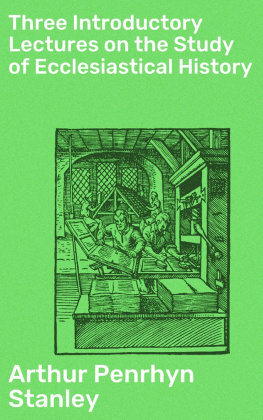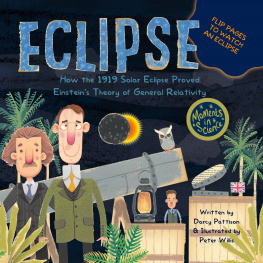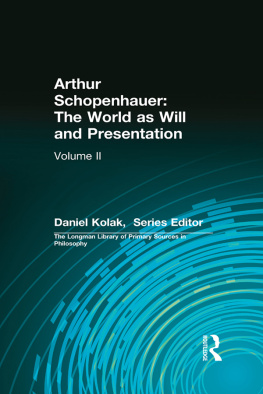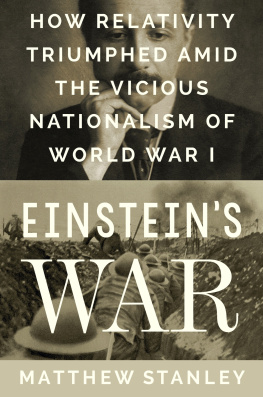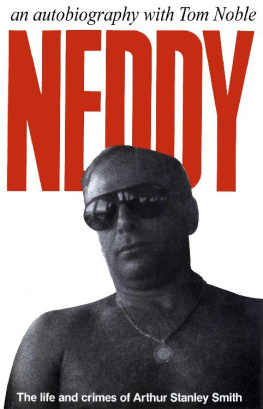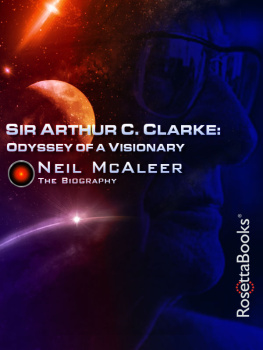Sir Arthur Stanley Eddington - The Nature of the Physical World
Here you can read online Sir Arthur Stanley Eddington - The Nature of the Physical World full text of the book (entire story) in english for free. Download pdf and epub, get meaning, cover and reviews about this ebook. year: 2014, publisher: Shizu Bito, genre: Science. Description of the work, (preface) as well as reviews are available. Best literature library LitArk.com created for fans of good reading and offers a wide selection of genres:
Romance novel
Science fiction
Adventure
Detective
Science
History
Home and family
Prose
Art
Politics
Computer
Non-fiction
Religion
Business
Children
Humor
Choose a favorite category and find really read worthwhile books. Enjoy immersion in the world of imagination, feel the emotions of the characters or learn something new for yourself, make an fascinating discovery.
- Book:The Nature of the Physical World
- Author:
- Publisher:Shizu Bito
- Genre:
- Year:2014
- Rating:4 / 5
- Favourites:Add to favourites
- Your mark:
- 80
- 1
- 2
- 3
- 4
- 5
The Nature of the Physical World: summary, description and annotation
We offer to read an annotation, description, summary or preface (depends on what the author of the book "The Nature of the Physical World" wrote himself). If you haven't found the necessary information about the book — write in the comments, we will try to find it.
The Nature of the Physical World — read online for free the complete book (whole text) full work
Below is the text of the book, divided by pages. System saving the place of the last page read, allows you to conveniently read the book "The Nature of the Physical World" online for free, without having to search again every time where you left off. Put a bookmark, and you can go to the page where you finished reading at any time.
Font size:
Interval:
Bookmark:
Compiler's Preamble
If you find this electronic version valuable, you may be interested in obtaining our other publications in the Sir Arthur Stanley Eddington Masterpieces Series:
The Philosophy of Physical Science
Relativity Theory of Protons and Electrons
Fundamental Theory
Comments are welcomed, and should be submitted to
thomas@flyingkettle.com
We appreciate Amazon reviews.
-o0o-
THE NATURE OF THE PHYSICAL WORLD
Sir Arthur Stanley Eddington

Prepared and illustrated by Thomas Goodey, with some notes added.
Table of Contents
INTRODUCTORY NOTE
Just after the European War, at a time when to the generation who had taken part in it, it seemed that nothing bigger or more important could affect their lives, a young don at Cambridge University was promulgating a very different view among all who had the good fortune to come in contact with him. It was evident from his speech and his writings that he had, or thought he had, experienced something which was much more significant and far-reaching in its implications than a mere European War; there was a restrained fervour about him that was unmistakeable. This young man was Mr. Eddington, now Sir Arthur, and a lapse of nearly twenty years has shown that he was right. His contribution to philosophy is just beginning to be fully recognized as the War is beginning to be fully forgotten.
Sir Arthur Eddington was born at Kendal in 1882. By education he is a mathematician of the highest possible distinction - he was senior wrangler of his year in 1904. By profession he is an astronomer, and thus his mature thought and research have been diverted from the realm of pure mathematics into the stream of natural science; but his mathematical equipment remains with him and has coloured all his writings. Now, if he must be labelled at all, he would probably accept the name "experimental philosopher", because his present philosophical standpoint owes much to his practical work among the stars.
Besides being a philosopher he is a man of truly remarkable insight into the minds of his fellow human beings. This is shown by the felicity of his analogies, and by his rare gift for explaining difficult ideas to lesser minds, and to minds which have no advanced mathematical training. The starting-points of many of his most difficult arguments are matters of commonplace observation and experience, and his academic enunciations of simple problems, about which we have been in the habit of thinking loosely and unscientifically, capture the fancy. In addition, a matter which has not been sufficiently remarked, he is a great writer of English prose, outstanding for its lucidity and beauty among contemporary writings. Therefore it is probably better not to label him.
When Eddington was born in Kendal, there was a small boy of three years of age living in Ulm, Wurttemberg. His name was Albert Einstein, and it is to be supposed that already the relativist outlook on life was formed in his subconscious mind. The two men are thus nearly contemporary, and when they were young their minds must have been occupied with similar ideas. Among scientists at the beginning of the twentieth century the principle of relativity, the quantum theory, and theories of infra-atomic structure were already shaking the foundations of classical mechanics, and the mathematical equipment which was to be used in the development of modern physics had been laid down years before by Gauss, Boltzmann, Lorentz, Minkowski, and others. Einstein was the first to crystallize the flux in his two famous theories. enunciable strictly only in mathematical form. These theories thus formulated enabled the current ideas to be applied at once to the practical development of experimental science, and to be tested in deed as well as in thought. Einstein afterwards summarized the theories briefly himself as follows:
The Special Theory of Relativity (1905):
"General laws of nature are co-variant with respect to Lorentz transformations."
The General Theory of Relativity (1917):
"All Gaussian co-ordinate systems are essentially equivalent for the formulation of the general laws of nature."
summaries which are still mathematical because they pre-suppose acquaintance with Lorentzian and Gaussian equations. The second theory, involving Gravitation, is much the more far-reaching of the two; it was this that stimulated Eddington to become the great interpreter of Einstein to the English-speaking world.
Eddington, however, was much more than Einstein's interpreter. As is suggested above, it seems likely that his mind had been working on similar lines, and no sooner was Einstein's general theory published than Eddington was able to expound it and explain its immense force, and its tremendous implications not only in the realms of mathematics and science, but also in philosophy and religion, to an audience which was, to say the least, sceptical. The point was, probably, that while other people were floundering, Eddington did not have to try to understand relativity; he simply understood it; it was there, in his bones; thus he could make others grasp it, and this without the aid of the differential equations in which the theories were formulated. The years went by and it is probable that Eddington's maturing mind diverged from Einstein's. He became engrossed in the problem of representing scientifically the space and time that are the subject of the astronomer's special study, and in 1928 he published his first important popular contribution to philosophy, The Nature of the Physical World .
It is no exaggeration to say that this book is of testamental importance in the recent emancipation of thought from the shackles of classical science. The new ideas have become so rapidly diffused that to the present generation it may seem difficult to realize the materialistic stranglehold which natural science, owing to its sensational practical successes during the nineteenth century, had gained on the throat of philosophy. Classical science was a mighty power with its record of electrical progress (the dynamo, telephony, wireless, radio-activity), and its conquests in other fields (vitamins, artificial manures, air transport), how could it be otherwise than mighty? and at the same time a depressing one to the spirit of man. Perhaps it led directly to the Great War and to the rigid forms of government which have succeeded the War. Just when it seemed to be all-powerful, all-pervading, Einstein and Eddington and others, by examining the function of the observer in scientific observations, exposed its limitations and solved the nightmare. This replacement of the observer, of subjectivity, into the objective world of science is the starting-point of Eddington's treatise. It is because observations are ultimately largely visual that the velocity of light plays such a significant part in this book, and it is because of the importance restored to the observer that the difficult discussion of the nature and behaviour of rods (for measuring space) and clocks (for measuring time), at rest, in motion, and at a distance, occupies the opening chapters.
Einstein and the quantum physicists have embodied these considerations in the mathematical equations of their theories, in a form which can be understood only by the mathematician. Eddington, fortunately for us, the Everyman readers, has found a means of suggesting his main tenets, and even of reaching "the later and more recondite developments in which the conceptions of greatest philosophical significance are to be found", without recourse to the methods of higher mathematics. We cannot hope to apprehend his scheme of the universe fully in the way that he does himself with his precise mathematical equipment, but he enables us to share the fruits of his thought rather in the way that we may accept and enjoy a broadcast transmission without understanding the technical processes of a wireless set, or drive a motor car without knowing how the engine works. We pay our money, two shillings in this case, and Eddington, the magician, does the rest.
Next pageFont size:
Interval:
Bookmark:
Similar books «The Nature of the Physical World»
Look at similar books to The Nature of the Physical World. We have selected literature similar in name and meaning in the hope of providing readers with more options to find new, interesting, not yet read works.
Discussion, reviews of the book The Nature of the Physical World and just readers' own opinions. Leave your comments, write what you think about the work, its meaning or the main characters. Specify what exactly you liked and what you didn't like, and why you think so.


